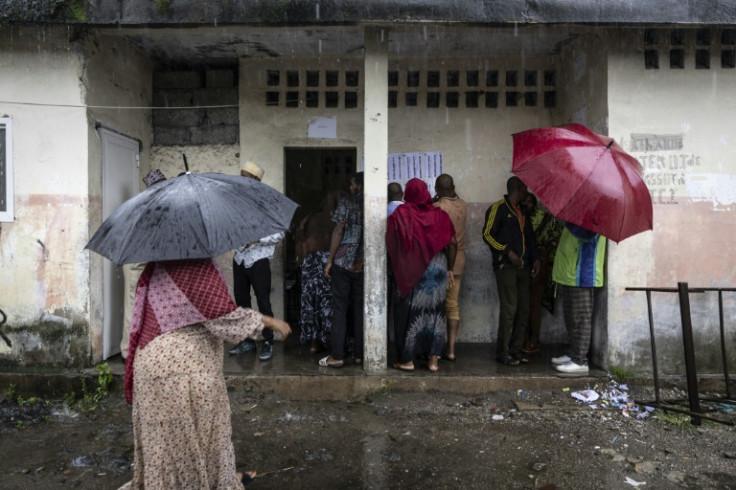
Political tension was running high in the Comoros on Monday, with violent incidents reported one day after the Indian Ocean island nation held a presidential vote.
The archipelago is awaiting official results from Sunday's first round election, which is expected to show incumbent leader President Azali Assoumani with a comfortable lead.
But supporters of the five opposition candidates have accused electoral authorities of delaying voting in their electoral strongholds and harassing polling observers.
The result of the first round is expected some time this week, but tension is already rising on the Comoros' three islands -- Grande-Comore, Anjouan and Moheli -- home to 870,000 people.
The country has faced more than 20 coups or attempted coups since its independence from France in 1975, but there have only been limited reports of violence during this year's vote.
In the capital Moroni, swept by heavy downpours of rain, life on the streets had largely returned to normal by Monday.
But reports from the island of Anjouan, an opposition stronghold, said that youths had taken to the streets in defiance of a ban on protests.
Anjouan governor Anissi Chamsidine, speaking to AFP by telephone, denounced what he said was a "flagrant breach of transparency and fairness" that had undermined the vote.
As well as tension in the streets, the governor said, "detonations" had been heard in Mutsamudu, hometown of jailed former president Ahmed Abdallah Sambi.
Two members of Abdallah Sambi's Juwa party told AFP that a group gathered at their headquarters had been tear-gassed and that security forces had detonated grenades to disperse a crowd.
Moheli, the smaller third island in the chain and home to just 25,000 voters, was also tense.
The opposition candidate for governor of Moheli, Abdoulanziz Hassanaly, told AFP that he suspected the ruling party would try to proclaim its candidate the winner after only the first round.
He claimed that his campaign director had been wounded by security forces while organising a protest at the electoral commission, and declared: "The population is in the street."
A 25-year-old woman from Moheli, who asked not to be identified, told AFP that the army was deployed in force in the island's capital Fomboni but that "citizens have blocked the roads".







